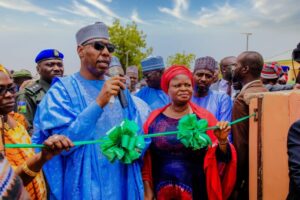Like every other Member State of the United Nations, Nigeria adopted the UN 2030 Agenda for Sustainable Development as a vehicle for freeing humanity from poverty, securing a healthy planet for future generations, and building a peaceful, inclusive society as a foundation for ensuring a life of dignity for all. This global momentum has at its heart a promise to leave no one behind. In effect, the 2030 Agenda is both ambitious and transformational, with a set of 17 integrated and indivisible Sustainable Development Goals (SDGs) broken down to measurable targets and indicators. Essentially, the Agenda is a shared plan to transform the world by looking after the welfare of the people within a period of fifteen years.
Accordingly, Nigeria began to implement the SDGs in 2015 as an immediate successor and inheritor of the activities previously carried out under the Millennium Development Goals (MDGs). These activities ranged from the conduct of a comprehensive data mapping exercise aimed at ascertaining the various sources of data for the SDG Indicators to be monitored as well as the awareness programmes to be carried out at national and sub-national levels of government. Another critical aspect of the early preparations was the development of a robust and comprehensive
statistical information system for monitoring progress achieved in the SDG targets that are of special relevance to Nigeria. Therefore, data collection for the development of a baseline database for SDG implementation in Nigeria aimed at laying a solid foundation for monitoring and evaluating the progress achieved in the SDGs in Nigeria.



